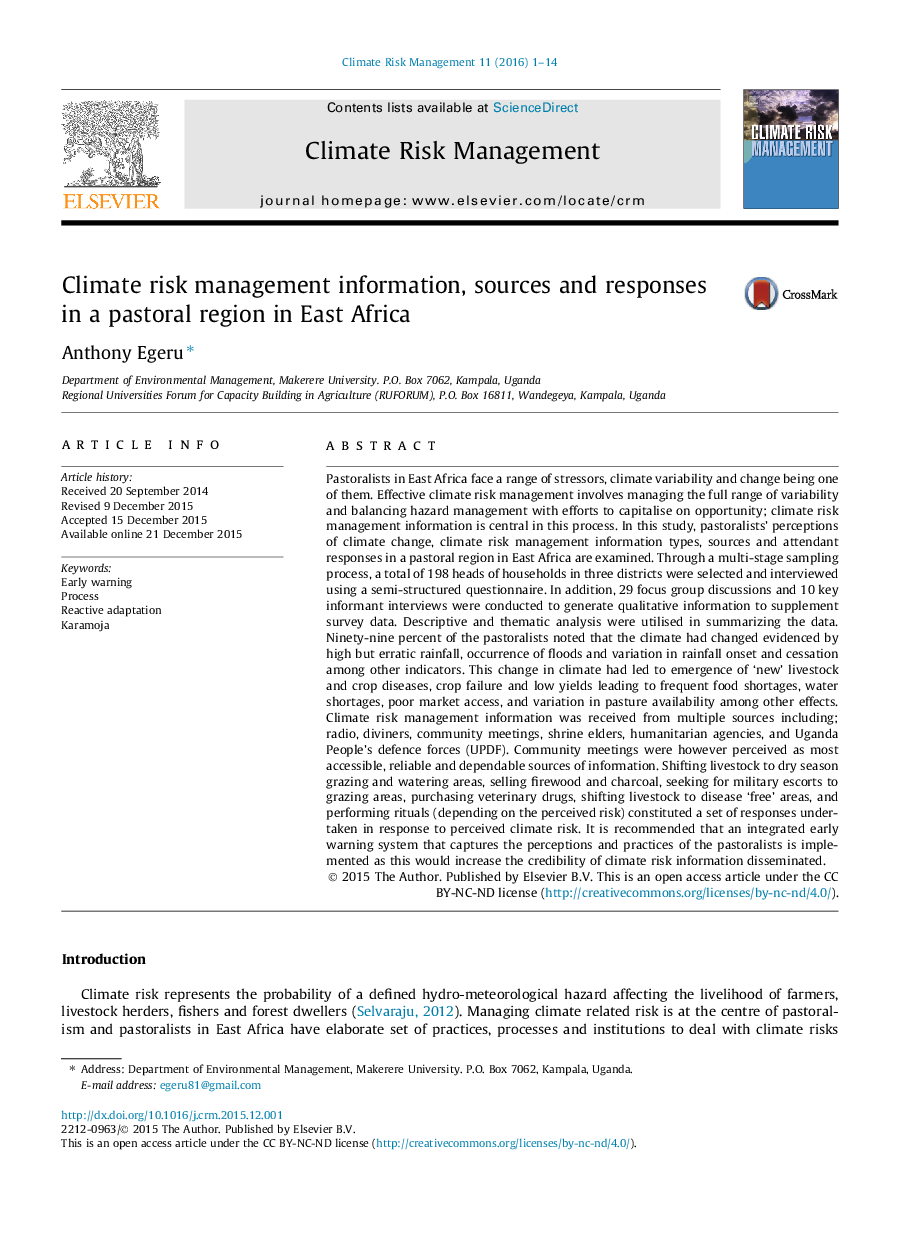| کد مقاله | کد نشریه | سال انتشار | مقاله انگلیسی | نسخه تمام متن |
|---|---|---|---|---|
| 1051203 | 1484881 | 2016 | 14 صفحه PDF | دانلود رایگان |
Pastoralists in East Africa face a range of stressors, climate variability and change being one of them. Effective climate risk management involves managing the full range of variability and balancing hazard management with efforts to capitalise on opportunity; climate risk management information is central in this process. In this study, pastoralists’ perceptions of climate change, climate risk management information types, sources and attendant responses in a pastoral region in East Africa are examined. Through a multi-stage sampling process, a total of 198 heads of households in three districts were selected and interviewed using a semi-structured questionnaire. In addition, 29 focus group discussions and 10 key informant interviews were conducted to generate qualitative information to supplement survey data. Descriptive and thematic analysis were utilised in summarizing the data. Ninety-nine percent of the pastoralists noted that the climate had changed evidenced by high but erratic rainfall, occurrence of floods and variation in rainfall onset and cessation among other indicators. This change in climate had led to emergence of ‘new’ livestock and crop diseases, crop failure and low yields leading to frequent food shortages, water shortages, poor market access, and variation in pasture availability among other effects. Climate risk management information was received from multiple sources including; radio, diviners, community meetings, shrine elders, humanitarian agencies, and Uganda People’s defence forces (UPDF). Community meetings were however perceived as most accessible, reliable and dependable sources of information. Shifting livestock to dry season grazing and watering areas, selling firewood and charcoal, seeking for military escorts to grazing areas, purchasing veterinary drugs, shifting livestock to disease ‘free’ areas, and performing rituals (depending on the perceived risk) constituted a set of responses undertaken in response to perceived climate risk. It is recommended that an integrated early warning system that captures the perceptions and practices of the pastoralists is implemented as this would increase the credibility of climate risk information disseminated.
Journal: Climate Risk Management - Volume 11, 2016, Pages 1–14
